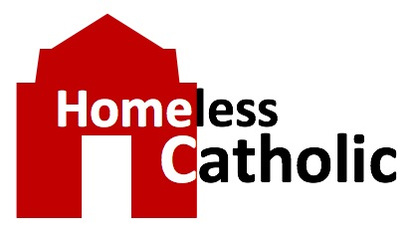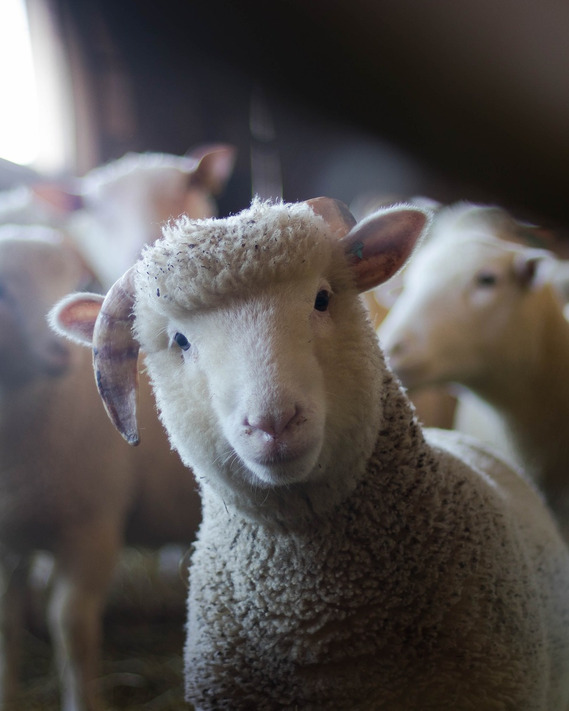Sheperds, Sheep, and Today’s Readings
What is it about sheep and the bible? It turns out that shepherd is probably the second oldest profession. Because sheep were an important source of wool, milk, and meat, they were a valuable and common sight to those in biblical times. It was the shepherd’s job to take care of every aspect of the relatively needy sheep.
Without effective herding, sheep may go hungry, fall prey to predators, or simply become lost. It was the shepherd’s job to take care of all things “sheep”.
Image by Moha Abdo
Sheperds, Sheep, and Today’s Readings
By Steve Leininger
https://bible.usccb.org/bible/readings/020621.cfm
Hebrews 13:15-17, 20-21
Mark 6:30-34
There was a sign posted at the market in ancient Israel:
Job opportunity available for the right man. We are in need of a shepherd. The usual shepherd requirements apply:
- Ability to manage a large flock of sheep
- Keep the sheep fed
- Protect the sheep from predators
- Lead the sheep
- Tend to the needs of the sheep
- Speak in a way that the sheep hear your voice and recognize you
- Find and retrieve lost sheep
So, what is it about sheep and the bible? It turns out that shepherd is probably the second oldest profession. Because sheep were an important source of wool, milk, and meat, they were a valuable and common sight to those in biblical times. It was the shepherd’s job to take care of every aspect of the relatively needy sheep. Without effective herding, sheep may go hungry, fall prey to predators, or simply become lost. It was the shepherd’s job to take care of all things “sheep”.
Many biblical figures were shepherds, among them the patriarchs Abraham and Jacob, the prophet Moses, and King David. In the New Testament, angels announced the birth of Jesus to shepherds.
Sheep and/or shepherd were part of each for the 4 parts of our daily readings for today. It is the common thread loosely connecting each section. Let’s take a look at each one and see if there’s a deeper hidden connection.
The first reading is from the last chapter of Hebrews, and is the final exhortation, blessing, and greetings from St. Paul or one of his close associates. The blessing in our verses today is:
“May the God of peace, who brought up from the dead the great shepherd of the sheep by the blood of the eternal covenant, Jesus our Lord, furnish you with all that is good, that you may do his will. May he carry out in you what is pleasing to him through Jesus Christ, to whom be glory forever and ever. Amen.” [Hebrews 13:20-21]
This is the only place in Hebrews where the resurrection is explicitly mentioned. The “great shepherd of the sheep” is used to refer to specifically “Jesus our Lord”, and the sheep are by association his followers, the Jewish audience of the author.
Today’s responsorial psalm is Psalm 23, perhaps the most well-known of the 150 Psalms. Written by King David, “the Lord is my shepherd” is the God of Israel, God the Father.
Psalm 23 portrays God as a good shepherd, feeding (verse 1) and leading (verse 3) his flock. The "rod and staff" (verse 4) are also the implements of a shepherd. It is known that the shepherd is to know each sheep by name, thus when God is given the analogy of a shepherd, he is not only a protector but also the caretaker. God, as the caretaker, leads the sheep to green pastures and still waters (verse 2) because he knows that each of his sheep must be personally led to be fed. Thus, without its Shepherd, the sheep would die either by a predator or of starvation, since sheep are known for their helplessness without their shepherd.
The third part of our non-Sabbath readings is the Alleluia, a short acclimation that keeps the responsorial psalm from bumping into the Gospel. It is often a verse extracted from one of the other readings, used to reinforce the message of the day. This time, the Alleluia came from Gospel of John.
“My sheep hear my voice, says the Lord; I know them, and they follow me.” [John 10:27]
In this case, the Lord is Jesus. To add some context to this declaration, we need to read the verses leading up to the verse.
“So the Jews gathered around him and said to him, “How long are you going to keep us in suspense? If you are the Messiah, tell us plainly.” Jesus answered them, “I told you and you do not believe. The works I do in my Father’s name testify to me. But you do not believe, because you are not among my sheep. My sheep hear my voice; I know them, and they follow me.” [John 10:24-27]
But wait, there’s more! If we go back just a bit earlier in John, we have Jesus proclaiming himself to be “The Good Shepherd”.
“I am the good shepherd. A good shepherd lays down his life for the sheep. A hired man, who is not a shepherd and whose sheep are not his own, sees a wolf coming and leaves the sheep and runs away, and the wolf catches and scatters them. This is because he works for pay and has no concern for the sheep. I am the good shepherd, and I know mine and mine know me, just as the Father knows me and I know the Father; and I will lay down my life for the sheep. I have other sheep that do not belong to this fold. These also I must lead, and they will hear my voice, and there will be one flock, one shepherd. This is why the Father loves me, because I lay down my life in order to take it up again. No one takes it from me, but I lay it down on my own. I have power to lay it down, and power to take it up again. This command I have received from my Father.” [John 10:11-18]
We now jump to a bit earlier in the ministry of Jesus. Today’s Gospel reading is a mostly a transition from the beginning of the work of the apostles and the major teaching appearances of Jesus. The apostles have just returned from being sent out in pairs with power over unclean spirits. They drove out many demons, and they anointed with oil many who were sick and cured them. Their last task before our reading today was to retrieve the body of John the Baptist, whom Herod had killed, and lay him in a tomb.
Our Gospel today starts with the return of the apostles, and Jesus suggesting that they withdraw to a deserted place and rest a while. Crowds were beginning to grow as more and more heard of the work and teachings of the Twelve and the works of Jesus.
“When he disembarked and saw the vast crowd, his heart was moved with pity for them, for they were like sheep without a shepherd; and he began to teach them many things.” [Mark 6:34]
Here is our sheep and shepherd theme again, this time the sheep are the people looked lost. Jesus is about to take on his role as shepherd, teaching them and feeding the crowd as the event becomes remembered as The Feeding of the Five Thousand.
Did you see a strong connection between the readings? I did not see a “common message” as much as I found a common portrayal of God and Jesus as shepherds of the flock. While digging for details, the most common connection seemed to be that having a leader, a shepherd, to guide those like us who are prone to becoming lost, has its roots in the early Jewish life and became a recognizable theme before, during, and after the life of Christ Jesus.
Pastor is Latin for shepherd. Today, part of the job of shepherding is baked into the job responsibilities of the pastor. Lead my sheep and feed my sheep.

